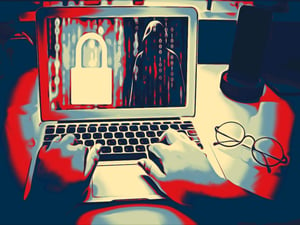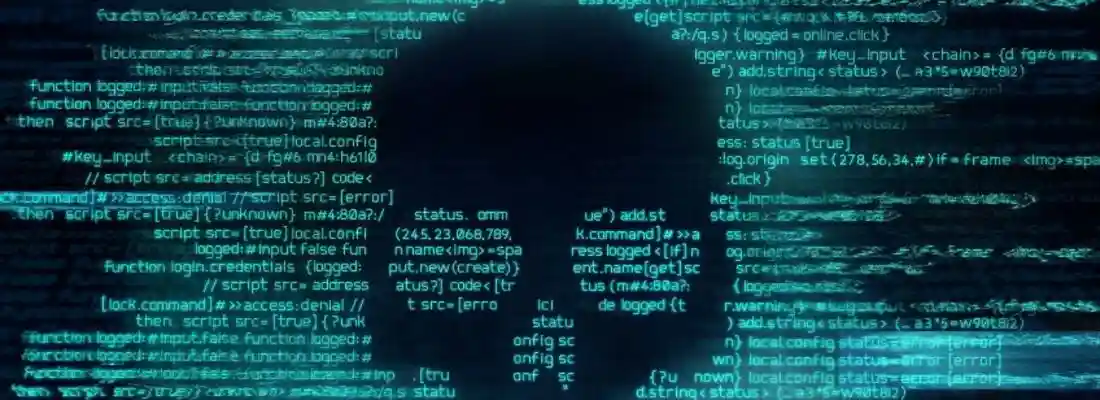Essential Cybersecurity Tips Every Student Should Know
Date: 31 May 2023

Students are exposed to many tech benefits and risks in today's digital landscape. Digital technologies have become integral to the lives of youth worldwide, including platforms offering paper writing help online.. These include the internet, smartphones, and digital platforms.
While these technologies offer various advantages, by contrast they also pose significant cyber security risks. The implications of digital technologies extend beyond privacy, trust, and cyber safety concerns. It also encompasses broader societal aspects. These include human rights and fundamental freedoms.
Given that context, it’s vital to learn about the importance of cyber security for students. Additionally, learners should be aware of internet safety tips as they browse and use the internet for their educational and social needs. It’s important to remain safe while browsing the net, using an admissions essay writing service, or simply chatting with online friends. Doing this will enable them to navigate the digital space safely.
Cybersecurity & Students' Needs: Ensuring Safe and Secure Transactions
Cyber security ensures safe and secure student transactions when they’re buying online courses or essays. This also applies to hiring paper writers. Protecting personal and financial information is of paramount importance in this digital age. To ensure online safety, you will need to follow the specific cyber security tips for students below.
First, they can check for a legit essay writing service. When it comes to ordering an essay online, it's important to exercise caution as there are numerous scams and unreliable services on the Internet. However, reliable study assistants are available from whom you can confidently order an essay online without fear of being deceived. Choosing a reputable and trustworthy service is crucial to ensure the quality and authenticity of the work you receive.
Next, exercising caution and being vigilant in sharing personal information is vital for online safety. Students must prioritize security and only provide necessary details. Making informed decisions and conducting due diligence is crucial for online security. Also, practicing safe digital habits protects students and their information. Overall, this keeps them safe when transacting online for essays or hiring paper writers.
Cybersecurity Basics: What Students Need to Know
Establishing a solid foundation in internet bullying starts with understanding some key concepts. The fundamental aspects of internet security can be explained to students better once they understand certain critical terms. In this category are malware, phishing, encryption, and two-factor authentication. Moreover, it is vital to emphasize safeguarding personal information and accounts. Enrolling in a Cyber Security Masters Program can further enhance understanding by covering these topics in depth. Students need to know the potential risks of identity theft and data breaches, and of unauthorized access to their web presence.

Teaching foundational cyber bullying principles is crucial. It provides students with the knowledge and skills they need to stay safe in online environments. Implementing appropriate security measures when learners hire paper writer services online also plays a vital role. It enables them to navigate the digital landscape and mitigate potential threats confidently. Empowering cyber crime awareness for students safeguards their personal information. It further contributes to safety in the classroom and a more secure online environment for everyone.
Recognizing Online Threats: Malware, Phishing, and Scams
It is important for learners to familiarize themselves with different types of online threats. These include malware, phishing attacks, and scams. Understanding how these threats operate empowers one to detect and avoid them effectively. Developing a skeptical mindset and practicing critical thinking is vital. Employing reliable security software is crucial in protecting against these threats as well.
Cyber Safety Tips for College Students
College students face unique challenges in terms of cyber security. Here are some tips to enhance their online safety:
- Safeguard Passwords: Use a strong password for each account. Enable two-factor authentication when available.
- Exercise Caution with Suspicious Messages: Be wary of phishing attempts. Avoid clicking links or downloading attachments from unknown sources.
- Reduce Public Wi-Fi Usage for Secure Activities: Public Wi-Fi networks can be tempting to use but they could be vulnerable. Thus using antivirus software or limiting their usage for sensitive tasks like e-banking is advisable.
- Practice Discretion in Social Media Sharing: Be mindful of what you share on social media. Also, adjust privacy settings to control the visibility of personal content.
- Enhance Security with Two-Factor Authentication: Enable two-factor authentication whenever possible. This step is necessary to add an extra layer of protection to accounts.
- Maintain Updated Apps and Software: Keep your devices, applications, and software current. Doing this ensures you enjoy the latest security patches and bug fixes.
- Safeguard Your Personal Information: Be cautious about sharing sensitive information online. Provide data only on secure, reputable websites.
- Shop Smart and Securely Online: Be careful when purchasing online. Ensure the website is trustworthy and uses secure payment methods.
- Stay Vigilant and Alert: Have a critical mindset, and question suspicious offers/requests. Also, think twice before sharing personal information or engaging in risky virtual activities.
- Promote Responsible Digital Citizenship: Educate others about cyber security best practices. Show responsible digital citizenship by promoting a culture of responsible digital behavior.
Internet Safety Rules & What Not to Do Online
Regarding internet safety for students, tutees must know common internet practices and how they expose them to cyber bullying. Sharing personal information on public platforms, such as social media, pose significant risks. Be careful of what you share and exercise caution. Doing this ensures that personal information remains professional and limited.
Furthermore, addressing the dangers of downloading files from untrusted sources is crucial. It is imperative to avoid clicking on unknown links for your internet safety. These actions expose you to malware infections and other cyber bullying threats. Following internet safety rules and avoiding risky behaviors is paramount to online safety. It helps young people significantly reduce vulnerability to web-based dangers.
On top of that, it protects their digital well-being. Promoting awareness of these internet safety rules empowers students to make informed decisions. In this way, they are able to navigate the digital world cautiously. As a result, it fosters safer and more secure internet interactions for themselves and others.
The Role of Schools in Delivering Effective Cyber Safety Education
Students should receive effective cybersecurity training and education in schools. They need to integrate cybersecurity as a core component of their curriculum. Through this, they empower young minds with skills to navigate the digital landscape securely. The practice of using the internet safely and the recognition of cyberbullying threats should also be part of this program.
Schools should incorporate cyberbullying education into the curriculum for online safety. This step prepares students for safe lifelong learning in a technology-driven world. They give them access to digital knowledge that caters to different learning styles. In other words, they allow students to learn at their own pace. Moreover, schools can invest in effective professional development programs for teachers. This ensures that they have the skills to deliver comprehensive cyber safety education.
Conclusion
In conclusion, cybersecurity is of utmost importance for students. Today, online threats are everywhere. Therefore, following these cyber security tips for teens is essential for online safety. This helps them develop good habits related to online activity and enhance their cybersecurity awareness. Practicing responsible digital citizenship and staying informed about emerging cyber threats is essential.
Implementing robust security measures provides a safer and more secure online experience. Students must prioritize safe internet usage in their daily web activities for safety reasons. By doing so, they will reap long-term benefits that extend beyond the academic years. Focusing on cybersecurity prepares them for online security and a digitally resilient future.




.webp)
.webp)


